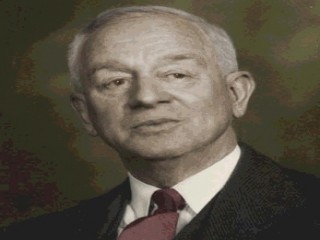
Francis Peyton Rous biography
Date of birth : 1879-10-05
Date of death : 1970-02-17
Birthplace : Baltimore, Maryland, U.S.
Nationality : American
Category : Science and Technology
Last modified : 2011-05-06
Credited as : Pathologist, and virologist,
The American pathologist and virologist Francis Peyton Rous received the Nobel Prize in medicine for his pioneering work on the relation of viruses to cancer.
Peyton Rous was born in Baltimore, Md., on Oct. 5, 1879. He attended Johns Hopkins University in Baltimore, from which he received a bachelor's degree in 1900 and a medical degree in 1905. From 1905 to 1906 he served as resident house officer at the Johns Hopkins Hospital and from 1906 to 1908 was an instructor in pathology at the University of Michigan. In 1909 Rous went to the Rockefeller Institute for Medical Research in New York City, where he remained until his death on Feb. 16, 1970.
At the Rockefeller Institute, Rous began a series of studies of tumors in chickens. It was then widely believed that cancers were caused by chemical agents and that they could be transmitted from one animal to another only through the actual transplantation of cancerous cells. By 1911 Rous was able to show that tumors in chickens could be transferred from one chicken to another through a cell-free filtrate. The implication of this work was that the particular cancer being studied was caused by a virus. However, although Rous's observations were indicative of what would one day be a widely held belief, that is, that some cancers are virusinduced, his work was not well accepted in 1911.
Rous next attempted to show that a virus was present as a causative agent in mammalian tumors, but he failed, and it was not until the mid-1930s that he again turned to this line of research. In the interim he developed methods of cultivating cancer viruses in test tubes and in chick embryos, did research in liver and gallbladder physiology, and was a principal figure in the development of blood banks. The last-mentioned contribution was made during World War I, when, working with J. R. Turner, Rous found that whole blood could be preserved for many weeks under refrigeration when it was put in a citrate solution.
In the early 1930s Richard Shope, a member of the Rockefeller Institute and friend of Rous, demonstrated that a virus caused large warts in wild rabbits. Working with this fact, Rous and his laboratory associates were soon able to show that the virus causing these warts sometimes produced cancer. With this demonstration that viruses were associated with mammalian cancers, the virus theory made great progress. By the mid-1940s, that viruses were one cause of cancer was generally accepted; in 1966, at the age of 87, Rous was awarded the Nobel Prize in medicine. The prize was shared with Charles Brenton Huggins, a pioneer in the treatment of cancer.
Rous received many other awards and much public recognition. He was a member of the Board of Scientific Consultants of the Sloan Kettering Institute for Cancer Research and was coeditor of the Journal of Experimental Medicine.
















